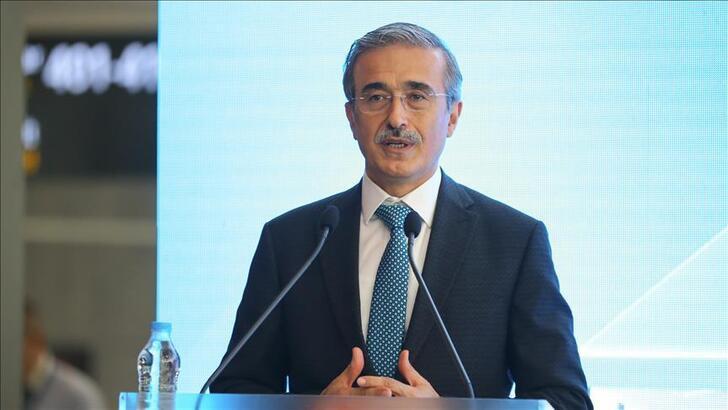Turkish defense industry to continue to develop despite US sanctions: Industry head
ANKARA

Turkey is determined to achieve a fully independent defense industry and U.S. sanctions against Turkey will be a flare warning for further development of the domestic industry, Turkish Defense Industries Presidency (SSB) head İsmail Demir said on Dec. 15.
“The development of the domestic industry will continue, perhaps even faster. In a sense, this [sanctions] will be a flare and a warning,” he told reporters following budget discussions in parliament.
The decision would not affect Turkey’s “relationships too much,” said Demir, noting that the country would find solutions in its “own environment.”
Underlining Turkey’s NATO membership, Demir said Ankara has relations with the U.S. in several fields. He added that both sides aim to continue these relations.
The U.S. sanctions include a ban on all U.S. export licenses and authorizations to the SSB and an asset freeze and visa restrictions on Demir and other SSB officers.
“No decision taken abroad towards myself or our institutions will change my or my team’s stance,” Demir tweeted after the sanctions were announced. The sanctions will not be able to hinder the Turkish defense industry in any way, he added.
Ankara has been expecting such a U.S. decision of sanctions within this framework, and this was “not a surprise,” Demir told HaberTürk broadcaster on Dec. 14.
“I don’t think there will be a concrete impact on Turkey’s defense industry. Because we have already been under restrictions,” he said.
“We are not concerned and there is no need that the public will feel concerned either,” he said, adding this move would further strengthen Turkey’s defense industry.
There is no expression in the statement that the current logistics and procurement processes of Turkey’s Defense Ministry would be affected by the sanctions, he said. Asked if the indigenous production of the armed or unarmed aerial vehicles would be affected by the U.S. sanctions, Demir said, “There will be no setback.”
In April 2017, when its protracted efforts to buy an air defense system from the U.S. proved fruitless, Turkey signed a contract with Russia to acquire the S-400 shield. U.S. officials have voiced opposition to their deployment, claiming they would be incompatible with NATO systems and would expose next-generation F-35 jets to possible Russian subterfuge. Turkey, however, stressed that the S-400 would not be integrated into NATO systems, and pose no threat to the alliance or its armaments.
















